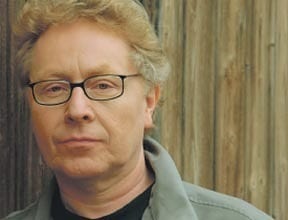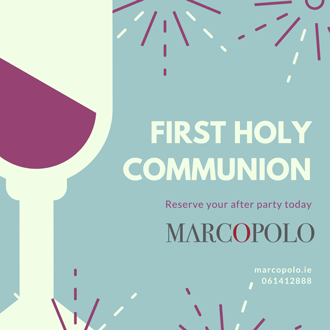 An interview with music legend Paul Brady
An interview with music legend Paul Brady
WHEN first shown the joyful, cartoon-like artwork for his new album, Paul Brady’s first utterance was “hooba dooba”, his favourite expression when something delights him. I meet Paul on the day Hooba Dooba was released and encounter an artist who after 40+ years in the business is relaxed, still passionate about the song-writing craft and delighted with his new recording.
On his song-writing process, he reveals; “It is a bit haphazard but its kind of magical in a way. What I do is amass scraps of music and lyrics, often, just a phrase like “money to burn” just comes and when I pick up the paper and read about some property developer who is whining because he has lost three million and then turn on the telly and see [earthquakes in] Haiti, suddenly I go we’re alright here, lets get real here, stop whining”.
When you gonna realise how lucky you are? You could be an infant junkie screaming for more. Or clinging to a refugee boat waiting offshore.
All I hear is one white male with money to burn.
And a whole lot to learn
From Money to Burn
by Paul Brady from Hooba Dooba
Confirming Paul Brady’s continuing commitment to the music that first brought him to national attention, the University of Limerick recently announced the ‘Paul Brady Blas Scholarship’ which will enable music students to avail of tuition from the most respected traditional musicians at the Blas Summer School. Paul spent 12 years singing folk music and playing guitar with trad groups The Johnstons and Planxty, and he surprised many when his first rock album Hard Station came out in 1981 featuring exhilarating and angry tracks ‘Busted Loose’ and ‘Nothing but the same old story’ and of course the anthem ‘Crazy Dreams’. Of that time, Paul remembers, “The changeover was very hard and at all times I met with resistance and some were aghast. I jumped from a very secure situation from being one of the most successful solo/folk artists in the country at the time to a complete nobody in the international rock scene.” Already in his thirties, the catalyst for Brady’s change of musical direction was hearing the song Baker Street by fellow folk artist Gerry Rafferty. So impressed was he that he de-constructed the elements of the song and set about forging his own musical style. “I had no more time to lose and spending time in traditional music was like a luxury I could no longer afford. I wanted to figure out who I was now and whether there was anything more I had to offer”
Since then this musical master craftsman has written classics like ‘The Island’, ‘The World is What you Make it’ and ‘Nobody Knows’ and has been covered by the likes of Cher, Tina Turner and Bonnie Raitt. He has in recent years collaborated and written with other artists, something he also described as a magical process. He wrote the Boyzone hit “The Long Goodbye” with Ronan Keating, a track that Brady initially had reservations about “I wouldn’t put it out on a record because I felt that it was too pop for me and people wouldn’t take it from me” But the hugely positive reaction to the song lead him to conclude “What I found most liberating about it was that I’m fluent in a lot more styles of music than I have traditionally allowed myself to play with on my own records” A fluency that is very evident on Hooba Dooba which confidently and effortlessly mixes many styles from the latin shuffle of “Rainbow” to the big sweeping balladry of ‘One More Today” and onto the country swing of “The Price of Fame” the most recent Brady/Keating collaboration.
Hooba Dooba is out now and Paul Brady and his band play UCH, on April 29.






